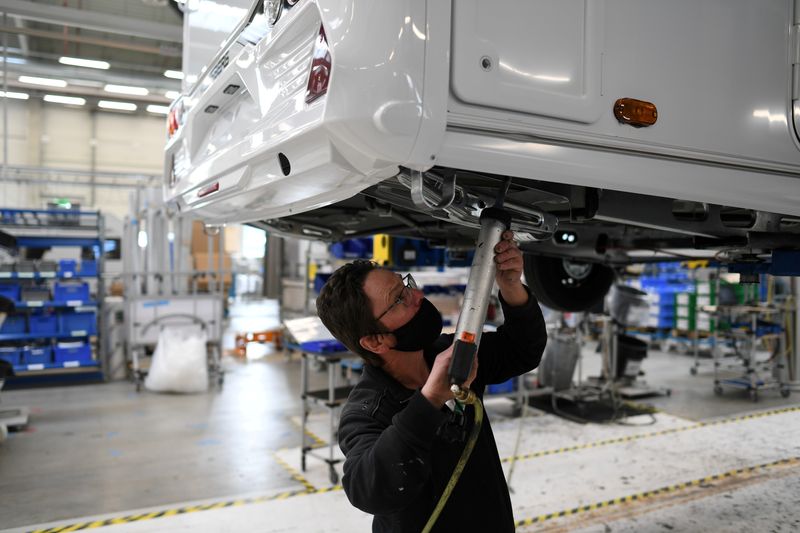LONDON (Reuters) - Manufacturing growth in the euro zone slowed last month as factories faced supply shortages, high prices and a fall in demand, according to a survey which suggested consumers were switching their spending to tourism and recreation.
S&P Global (NYSE:SPGI)'s final manufacturing Purchasing Managers' Index (PMI) fell to 54.6 in May from April's 55.5, its lowest since November 2020, but did come in ahead of a preliminary reading of 54.4. Anything above 50 indicates growth.
An index measuring output, which feeds into a composite PMI due on Thursday and seen as a good gauge of economic health, nudged up to 51.3 from 50.7.
"Euro area manufacturers continue to struggle against the headwinds of supply shortages, elevated inflationary pressures and weakening demand amid rising uncertainty about the economic outlook," said Chris Williamson, chief business economist at S&P Global.
"However, the manufacturing sector's deteriorating health has also been exacerbated by demand shifting to services."
As economies have reopened following the coronavirus pandemic citizens have are enjoying vacations and recreational activities again, S&P Global said.
The May flash services PMI dipped to 56.3 from 57.7, however, suggesting growth also slowed in that sector.
Supply chains only just healing from the pandemic have meanwhile been damaged by the war in Ukraine and factories are having to pay higher costs for the raw materials they need, some of which they have passed on to consumers, weakening demand.

Euro zone inflation rose to a record high of 8.1% in May, official data showed on Tuesday and the new orders PMI fell to 48.7 last month from 51.6, its first time below the breakeven 50 mark since June 2020.
"A major driver of the first drop in new orders for almost two years was the ongoing supply crunch and accompanying price pressures, with producers of many goods and raw materials raising their prices yet again alongside a recent surge in energy prices," Williamson said.